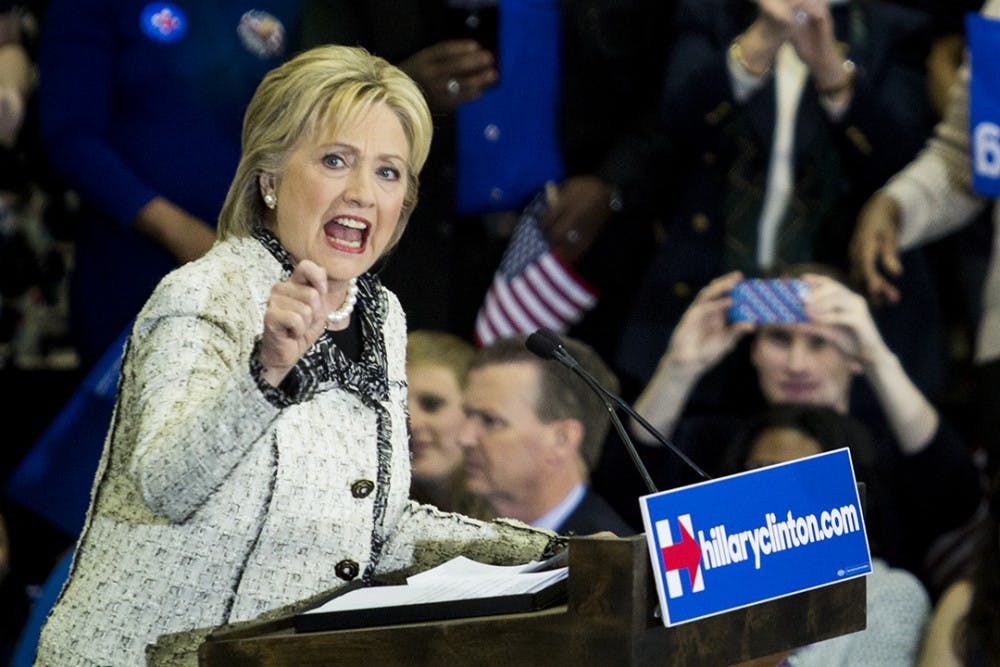Tuesday the whole world watched and anticipated the outcome of what has been an unconventional and bizarre election cycle in the United States. Foreign exchange students and a visiting professor from Cuba at USC provide international perspectives on the election and are curious to see who will claim the presidency and at what cost.
Giorgio DeLucia, a third-year geography student from England, expressed his discomfort with the idea of a Trump presidency, stating that he does not think the Republican presidential candidate is fit to manage international relations.
"I'm kind of worried that he might press a button and it's gonna cause just absolute chaos on a global scale," he said.
DeLucia mentioned that he does not think a Clinton presidency following the Obama administration would bring about a harsh global impact.
Bob Rutten, a third-year international business student from the Netherlands, said he thinks this election's outcome has a greater potential than past elections to lead to serious consequences, particularly in the case of a Trump win. He expressed concern about Trump's relationship with Russia's leader, Vladimir Putin.
"They both have the power to do a lot of damage," Rutten said.
Moritz Krahenmann, a third-year business management student from Switzerland, said he thinks the global impact of this election will be huge if Trump wins compared to if Clinton wins because Trump's idea of the economy is not considered as international as Clinton's.
He added that people around the world are nervous about the outcome, but he thinks that soon after the election everyone will realize that it won't be that bad either way because of restrictions on power.
"All the presidents will be implemented in a system, so it's not that he will rule the world by himself," he said.
For Rutten, both parties' choices of nominee were disappointing.
"Such a powerful big country, so many people, so many bright people, highly educated people, and then you come up with these two candidates. There must be brighter, more suitable candidates," stated Rutten.
DeLucia said media stations in England seem to characterize Trump as the only harmful candidate, and that he did not think Clinton was that bad before coming to the US; however, his opinion changed after spending time in the US and discussing the candidates with Americans.
"The vast majority of Americans think it's like the case of two evils," he said.
DeLucia added that people in the U.K. generally do not support Trump at all, and that they are behind Clinton for the most part.
Dr. Olga Rosa González Martín, a deputy director at the University of La Habana in Cuba who works closely with the School of Journalism and Mass Communication, said that nobody expected a man like Trump to become the Republican presidential candidate.
She thinks Cuba would prefer to see Clinton take office because she is seen as a serious politician that other countries know how to deal with, whereas Trump is unpredictable.
"You don't know what he is going to do the next day," González said.
González added that she thinks it is good for women to see a female presidential candidate in the United States, noting that a number of Latin American countries currently have or have had female presidents.
"For so many people, it was about time to see a woman in the U.S," she said.
The presidential debates during this year's election cycle have been characterized by disruptive behavior and ineffectiveness, and, according to foreign exchange students at USC, other countries notice this.
Rutten said that in his country, the candidates do a better job of stating their ideas on policy, whereas this year Clinton and Trump appeared to target each other instead of stating how they want to change things.
Krahenmann said the debates seemed to revolve more around personal issues that the candidates have with each other, and referred to the way Clinton and Trump went about the election process as "dirty."
DeLucia said the election process in England is more subtle than in America, where it is more "in your face."
He characterized political rallies in the U.S. as "crazy," recalling that people at Trump rallies have been beaten up, which according to him does not happen in England.
Students talked about international perception of some of Trump's past comments, particularly his allegations that the American election system is rigged.
"He's a U.S. presidential candidate, and he says the U.S. system doesn't work. So, this is wrong by itself, no? He should support the United States and believe in what you are," Krahenmann said.
DeLucia said that such comments appear to be an attempt at political gain and that citizens of countries where the elections are truly rigged "must think it's a complete joke."
Students compared the way that the U.S. reached its presidential candidates options to the way in which the United Kingdom came to vote in favor of exiting the European Union.
They said the citizens of the U.K. voted to leave, but did not think it would actually happen. They think the U.S. is in a similar situation, particularly in the case of a Trump presidency.
"I think here, the people are more emotionally supporting Trump at the moment, and I think, still, a lot of them don't really believe that it will happen," Moritz said.

